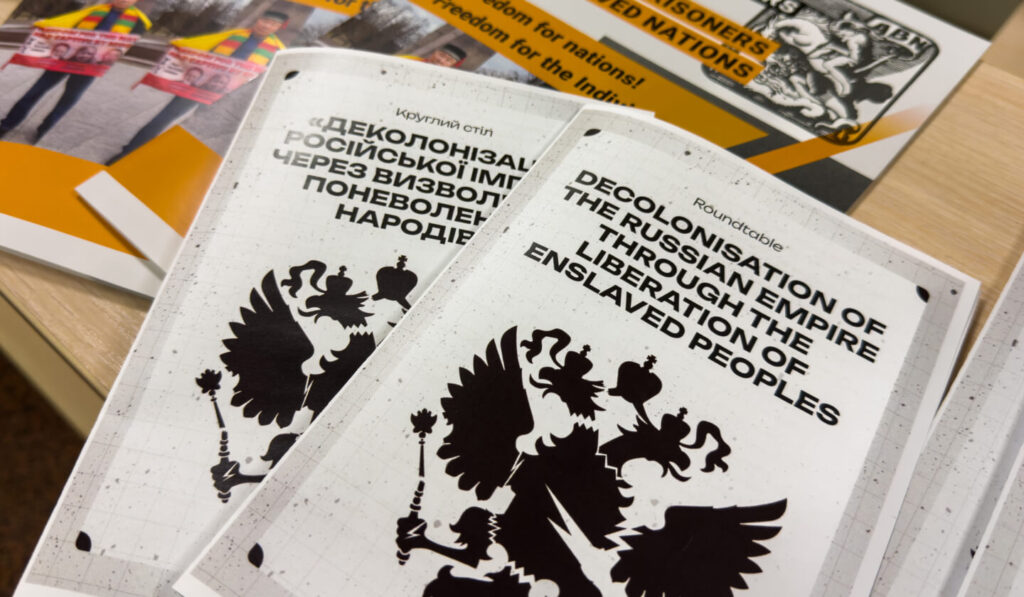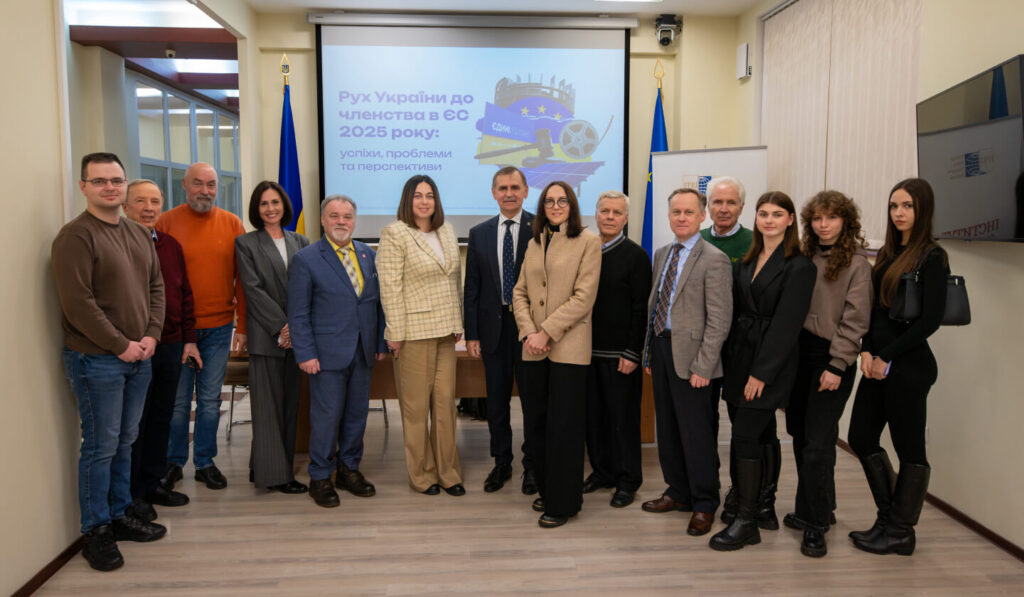On Thursday, 29 May 2025, the Foreign Policy Research Institute, with the organisational support of the Directorate-General for Rendering Services to Diplomatic Missions, held a roundtable entitled The World Order After the Third World War.
The event was moderated by Hryhorii Perepelytsia — Director of the Foreign Policy Research Institute, Doctor of Political Science, full professor at the Chair of International Relations and Foreign Policy of the Educational and Scientific Institute of International Relations of the Taras Shevchenko National University of Kyiv, captain 1st rank.

In the opening remarks, Mr Perepelytsia explained the relevance of the issues to the agenda of the discussion. He also expressed his understanding of the situation, the main geopolitical players, and their influence on the dynamics of international relations.
‘Today, the existing world order is in a state of uncertainty. The global community is going through a new historical turning point associated with a shift in the system of international relations. Our roundtable discussion aims to assess the outlook for the development of the international relations system and its renewal as a result of a change in the balance of power, which in turn leads to a change in the balance of interests.’
The panel of speakers consisted of Mykola Kapitonenko — PhD in Political Science, associate professor of the Department of International Relations and Foreign Policy of the ESIIR of Taras Shevchenko National University of Kyiv, Executive Director of the Centre for International Relations Studies; Maksym Palamarchuk — PhD in Political Science, senior research fellow, Deputy Director — Head of the Centre for Foreign Policy Studies at the National Institute for Strategic Studies; Sergii Tolstov — Head of the Department of Transatlantic Research of the State Institution ‘Institute of World History of the NAS of Ukraine’, PhD in Political Science, associate professor; Pavlo Hai-Nyzhnyk — leading research fellow of the Department of Political Culture and Ideology of the Kuras Institute of Political and Ethnic Studies of the NAS of Ukraine, Doctor of History; Oleh Kondratenko — leading research fellow of the Department of Global Political Development Problems of the Kuras Institute of Political and Ethnic Studies of the NAS of Ukraine, Doctor of Political Science, associate professor.
Mykola Kapitonenko expertly covered the theoretical concepts of the international system and the system of international relations, described the types of world order systems, and highlighted the current challenges:
‘Realism is now resurgent in international politics. Key decision-makers, including President Trump, view the world through this lens of “the strong do what they please and the weak must suffer”. This approach replaces the various neoliberal paradigms that previously underpinned the international security system.’
Sergii Tolstov spoke about the concept of global warfare and scenarios of international security, including that of the European countries.
‘I believe that World War III remains far from being a clearly foreseeable prospect that we can address from a practical point of view. Rather, a shaky balance of power arrangement that would be an alternative to World War III represents the kind of world order that lies ahead. For us, the most likely European security scenario is a potentially splintered regional war of indefinite duration, as I think the crisis will lead to the fragmentation of the Euro-Atlantic region. This will follow the division of areas of responsibility between the US and European countries. The only alternative facing Europe is a return to the concept of a European Defence Community.’
During the roundtable, the speakers shared their professional opinions on such important perspectives as the transformation of the international relations system depending on the balance of power: between unipolarity, bipolarity, tripolarity, and multipolarity; the likelihood of reaching a just peace in the context of the World War III; geopolitical ambitions of the main players: the United States, China, russia, Europe, and Ukraine; scenarios involving the dismantling of the Yalta system and the formation of new alliances; the potential of the US and russia to cooperate in deterring China; the probability of a transition to a China-centric world; the limits of global compromise to achieve a lasting peace; Europe’s role as a possible autonomous global geopolitical player; and Ukraine’s place in the new configuration of the world order.
Scholars, university professors and students, as well as diplomats, actively joined the discussion.













